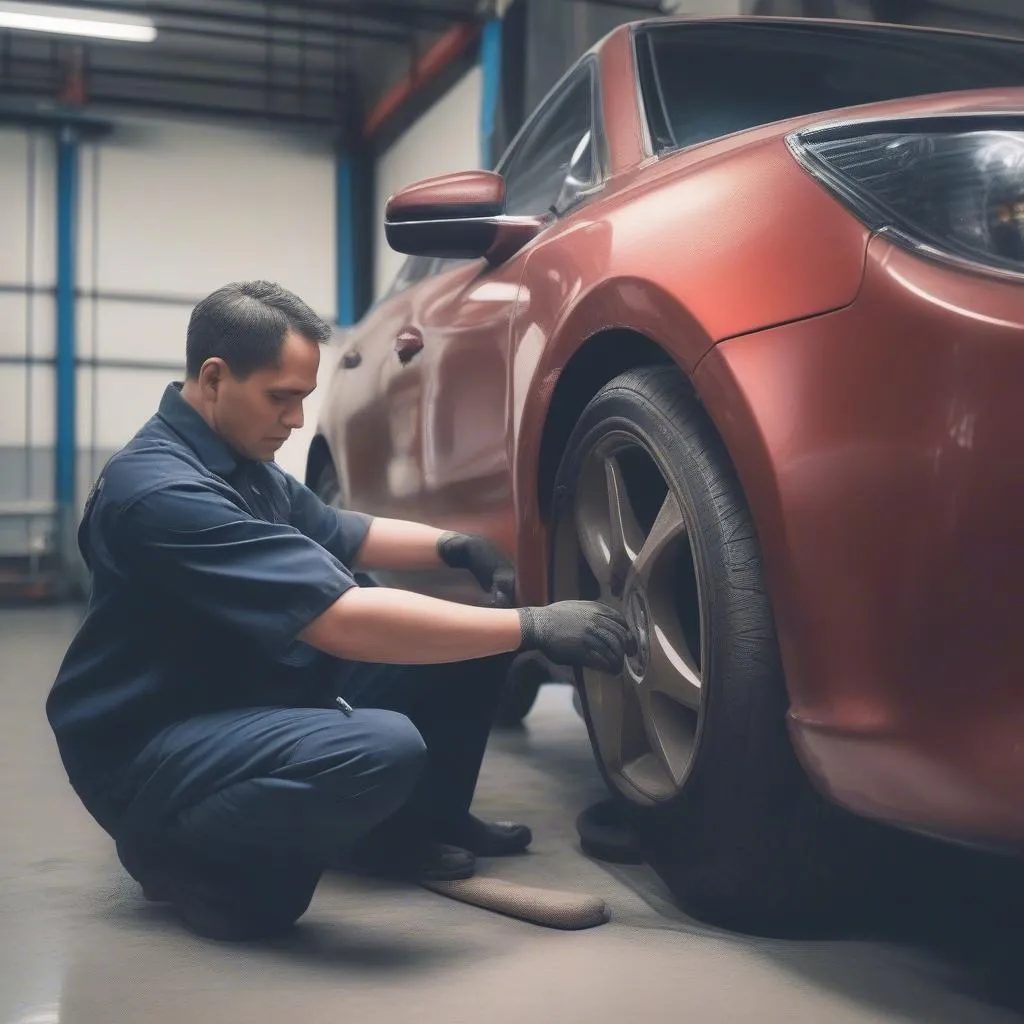Picture this: you’re cruising down the highway, sun is shining, your favorite song is on, and then… the dreaded shaking starts. You hit 70 mph and suddenly it feels like your car is doing the jitterbug. Not exactly the smooth ride you were hoping for, right?
Don’t worry, we’ve all been there. A car shaking at high speeds, particularly around 70 mph, is a common issue, but it’s definitely not something to ignore. It could be a sign of a minor problem or something more serious lurking under the hood.
What Does “Car Shakes at 70 mph” Really Mean?
Let’s break it down from a few different perspectives:
The Mechanic’s View: To a seasoned mechanic, hearing “car shakes at 70 mph” sets off a mental checklist. It could be anything from unbalanced tires to worn-out suspension parts, and they know they need to investigate further to give you a proper diagnosis.
The Car’s Perspective: Imagine your car trying to speak to you. The shaking is its way of saying, “Hey, something’s not right here!” It’s like a cry for help from your four-wheeled friend.
Your Wallet’s Perspective: Ignoring the shakes can lead to costlier repairs down the road. Addressing the issue early can save you time, money, and a whole lot of headaches.
So, Why Does My Car Shake at 70 mph?
Here are some of the most common culprits:
1. Tire Troubles: The Usual Suspects
Unbalanced Tires: This is often the number one reason for car shakes. Think of it like a washing machine on spin cycle with an uneven load. Get those tires balanced!
Misaligned Wheels: If your wheels aren’t pointing in the same direction, it can cause a pull or shake, especially at higher speeds. Time for an alignment!
Damaged Tires: A bulge, bubble, or flat spot can throw off the tire’s balance and lead to vibrations. Inspect those tires carefully!
Worn Tires: Tires wear down over time, and uneven wear can definitely contribute to shaking. Check your tread depth and tire condition!
2. Suspension System: The Unsung Heroes
Wworn Shocks or Struts: These components absorb bumps in the road. When they’re worn, your car can bounce excessively and shake.
Damaged Control Arms or Ball Joints: These parts help keep your tires in contact with the road. If they’re damaged, you’ll feel it, especially at higher speeds.
3. Other Potential Culprits:
Brake Problems: A sticking caliper or warped rotor can cause vibrations that get worse at higher speeds.
Drivetrain Issues: Problems with the axles, driveshaft, or CV joints can lead to vibrations, particularly at specific speeds.
Engine Issues: While less common, engine problems can sometimes cause vibrations that are felt throughout the vehicle.
 Car shaking due to unbalanced tires
Car shaking due to unbalanced tires
What to Do When Your Car Shakes at 70 mph
-
Don’t Panic, But Don’t Ignore It: Pull over to a safe location and check your tires for any visible damage.
-
Head to a Mechanic: The sooner you get it checked out, the better. A qualified mechanic can properly diagnose the issue and recommend the necessary repairs.
-
Be Specific: Tell your mechanic about the shaking, the speed at which it occurs, and any other symptoms you’ve noticed.
Car Shakes at 70 mph: Frequently Asked Questions
Q: Will a wheel alignment fix my car shaking?
A: It depends! If misaligned wheels are the cause, then yes, an alignment can solve the problem. However, it’s important to address the root cause of the shaking.
Q: How much does it cost to fix a car that shakes at high speeds?
A: The cost varies depending on the underlying issue. A simple tire balance can be relatively inexpensive, while suspension repairs or drivetrain issues can be more costly.
 Car alignment
Car alignment
Q: Can I still drive my car if it shakes at 70 mph?
A: It’s best to avoid driving at high speeds until the issue is resolved. Driving with a shaking car can be dangerous and potentially worsen the problem.